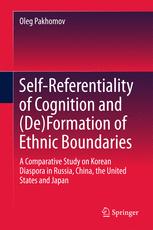

Most ebook files are in PDF format, so you can easily read them using various software such as Foxit Reader or directly on the Google Chrome browser.
Some ebook files are released by publishers in other formats such as .awz, .mobi, .epub, .fb2, etc. You may need to install specific software to read these formats on mobile/PC, such as Calibre.
Please read the tutorial at this link: https://ebookbell.com/faq
We offer FREE conversion to the popular formats you request; however, this may take some time. Therefore, right after payment, please email us, and we will try to provide the service as quickly as possible.
For some exceptional file formats or broken links (if any), please refrain from opening any disputes. Instead, email us first, and we will try to assist within a maximum of 6 hours.
EbookBell Team

4.1
60 reviewsThis book develops a new approach towards the formation of the ethnic boundary as a complex interrelation between cognitive operations and ethnic/national boundaries formation process. Korean diaspora in China, Russia, the United States, and Japan illustrate how this process correlates with the nationalism of the host societies, highlighting the differences and similarities. It covers a wide range of topics, from politics and economics to arts, mass culture and psychology, from comparative and interdisciplinary perspectives, at the same time avoiding eclectic combinations of different spheres of knowledge.
This book challenges interactionist and post-modernist paradigms that dominate today’s social science and facilitates dialogue between social and natural scientists, especially cognitive studies to promote more complex and still systematic approach towards society. It combines in-depth research, comparative perspectives and theoretical thoroughness. It appeals to anyone interested in history, culture, economic and other aspects of Korean migration; the general theory and practice of migration; East Asian studies, Asian American studies, Russian studies and studies on social complexity and cognition.